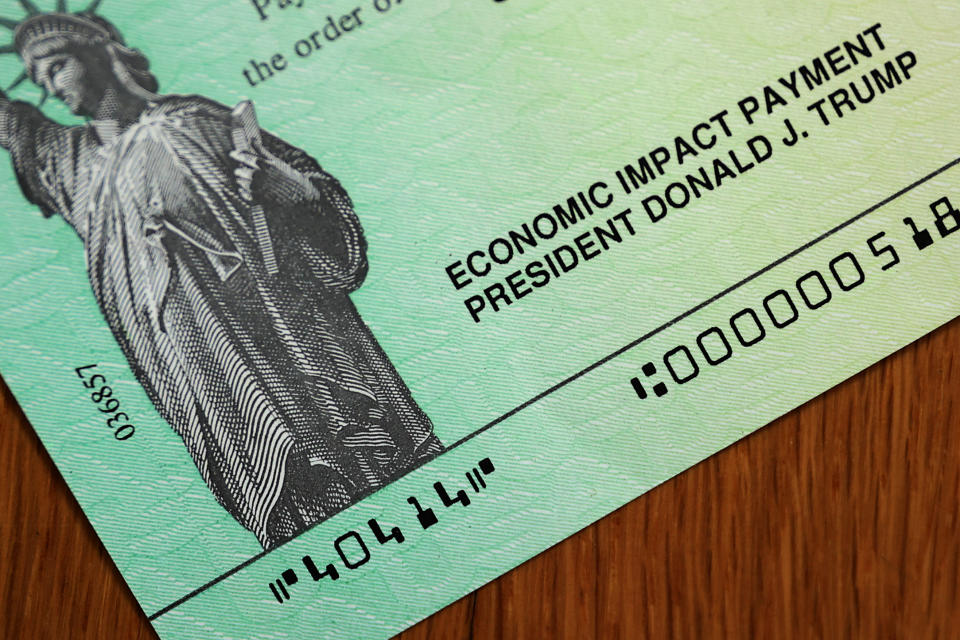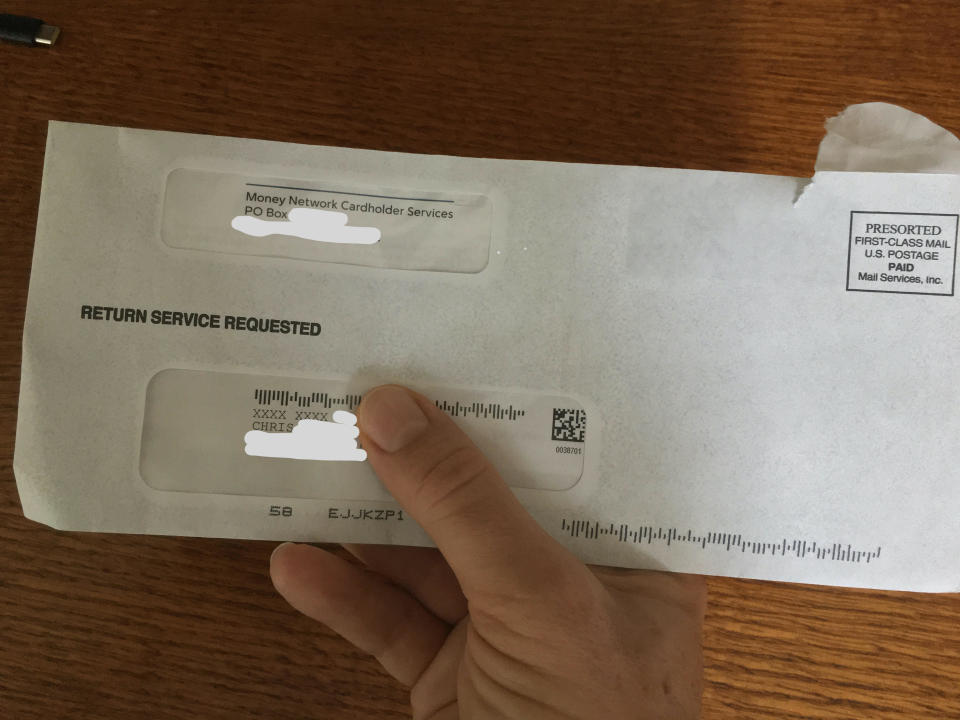Coronavirus stimulus checks: Democrats warn Treasury that debit cards 'may delay' payments
Democratic lawmakers are questioning the Treasury’s decision to use prepaid debit cards to distribute coronavirus stimulus payments, saying these cards may actually prevent Americans from getting their money promptly.
“Treasury recently stated that these cards are ‘secure, easy to use, and allow [Treasury] to deliver Americans their money quickly,’” a letter sent Thursday by the chairman of the House Ways and Means Oversight Subcommittee and all its Democratic members said. “However, recent reports indicate the cards are creating confusion and actually may delay when Americans receive this emergency assistance.”
Read more: Coronavirus stimulus checks: How to use your payment debit card
Last week, the Treasury announced that about 4 million Americans eligible for the stimulus but had no direct deposit information on file would get a prepaid debit card, instead of a mailed paper check.

But some Americans who got their stimulus check by debit card have run into problems with their payments, including receiving cards with wrong names on them or accidentally shredding the unmarked envelope the card arrived in, according to reporting by Yahoo Money and other outlets.
On Wednesday, the Internal Revenue Service put out a bulletin describing the plain white envelope in which the debit card would be mailed, so recipients don’t accidentally throw it out.
But the envelope is from “Money Network Cardholder Services,” which is not a name that people recognize, the lawmakers said in the letter.
“Further, there is no indication on the envelope or the card itself that it is an EIP or that it comes from Treasury,” according to the letter, using the acronym for economic impact payment, otherwise known as the stimulus payments. “These facts are leading many individuals to believe that the debit cards are junk mail or a scam.”
Read more: Coronavirus stimulus checks: Here's how people are spending their relief money
The recipients are those without bank information on file who are eligible for the payment and had their tax return processed by the Andover or Austin IRS Service Center, according to the IRS. But the lawmakers requested an explanation of the “criteria used for selecting these taxpayers to receive a card instead of a paper check.”
The lawmakers also asked Treasury to provide information on how many cards had been activated, replaced, and the amount of replacement fees that have been paid.

“This is particularly concerning because many taxpayers may be discarding or destroying their EIPs upon receipt,” the lawmakers wrote in the letter, “and it is unclear what recourse they will have subsequently to access their payments with or without additional fees.”
A Treasury spokesperson told Yahoo Money that the “plain white envelope is to protect against potential fraud.”
Those who lost or destroyed their EIP Card can request a free replacement through customer service at 1-800-240-8100 (option 2 from main menu), the spokesperson said.
“The standard fee of $7.50 will be waived for the first reissuance of any EIP Card. Any initial reissuance fee charged to a customer from an earlier date will be reversed,” the Treasury spokesperson said. “Individuals do not need to know their card number to request a replacement.”
Denitsa is a writer for Yahoo Finance and Cashay, a new personal finance website. Follow her on Twitter @denitsa_tsekova.
Read more:
‘I'm looking at everything:’ Recent college graduates struggle to find jobs
‘They just couldn't afford to bring us back’: Many furloughs turn into permanent layoffs
Read more personal finance information, news, and tips on Cashay
Follow Yahoo Finance on Twitter, Facebook, Instagram, Flipboard, SmartNews, LinkedIn, YouTube, and Reddit.

 money
money 
